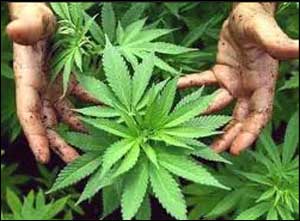- Home
- Editorial
- News
- Practice Guidelines
- Anesthesiology Guidelines
- Cancer Guidelines
- Cardiac Sciences Guidelines
- Critical Care Guidelines
- Dentistry Guidelines
- Dermatology Guidelines
- Diabetes and Endo Guidelines
- Diagnostics Guidelines
- ENT Guidelines
- Featured Practice Guidelines
- Gastroenterology Guidelines
- Geriatrics Guidelines
- Medicine Guidelines
- Nephrology Guidelines
- Neurosciences Guidelines
- Obs and Gynae Guidelines
- Ophthalmology Guidelines
- Orthopaedics Guidelines
- Paediatrics Guidelines
- Psychiatry Guidelines
- Pulmonology Guidelines
- Radiology Guidelines
- Surgery Guidelines
- Urology Guidelines
Cannabis linked to severe heart attack risk among adolescents

Cannabis is the most commonly abused illicit drug with a steadily increasing prevalence in usage and abuse over the past decade, especially among adolescents especially in the Westernized World. The effects of marijuana on the CV system are extremely worrisome and likely need more attention due to the growing legalization of cannabis for medicinal and recreational use.
Researchers have found in a recent study that Teens and young adults who use cocaine, amphetamines, and cannabis are more likely to be hospitalized for heart attacks by early adulthood than their counterparts who don't use these drugs.
Short-term effects of cannabis can include mood changes, impaired body movements, and difficulty with thinking, problem-solving and memory. Over time, the drug can also lead to breathing challenges, increased heart rate and a range of mood disorders.
Researchers examined data from 2010-2014 on 1,694 patients ages 15 to 22 who were hospitalized for heart attacks, plus almost 9.4 million patients this age who were hospitalized for other reasons.
Overall, the risk of a heart attack hospitalization was 3.9 times higher for cocaine users, 2.3 times higher for amphetamine users, and 30% higher for cannabis users than for non-users of these drugs.
Cannabis is considered by many people to have a low medical risk, "despite growing evidence of significant side effects from cannabis use disorders (dependence/abuse)," Dr Rikinkumar Patel of Griffin Memorial Hospital in Norman, Oklahoma, and colleagues write in the Journal of Adolescent Health.
"Our study demonstrates a higher prevalence and a significant odds ratio of (acute heart attack) in the younger population with cannabis use, along with the potential cost burdens because of the severity of illness, extended length of hospitalization, and higher use of treatment modalities," the researchers write.
In the current study, about 15% of the young people hospitalized for heart attacks were cannabis users, while 2.5% used amphetamines, 6% used cocaine, 2.6% used opioids, and 28.4% used tobacco.
The majority of patients with substance use habits related to their heart attack were 19 to 22 years old, male, and white, the study found.
More low-income patients used amphetamine, while more high-income patients used cocaine, the study also found.
Cannabis users appeared to have worse outcomes after a heart attack than patients who used other substances.
Almost 15% of cannabis users had a severe illness when they were admitted for a heart attack, a greater proportion than was seen with cocaine or amphetamine users.
The average inpatient hospital charge for cannabis users who had heart attacks was $53,608, compared with $49,979 with cocaine and $43,720 with amphetamine.
Overall, 2.7% of the heart attack patients died in the hospital. While 2% of cannabis abusers who had heart attacks died during their stay, none of the cocaine or amphetamine users who had heart attacks died.
For further reference log on to:
bit.ly/2XK1GkA Journal of Adolescent Health, online October 11, 2019.

Disclaimer: This site is primarily intended for healthcare professionals. Any content/information on this website does not replace the advice of medical and/or health professionals and should not be construed as medical/diagnostic advice/endorsement or prescription. Use of this site is subject to our terms of use, privacy policy, advertisement policy. © 2020 Minerva Medical Treatment Pvt Ltd